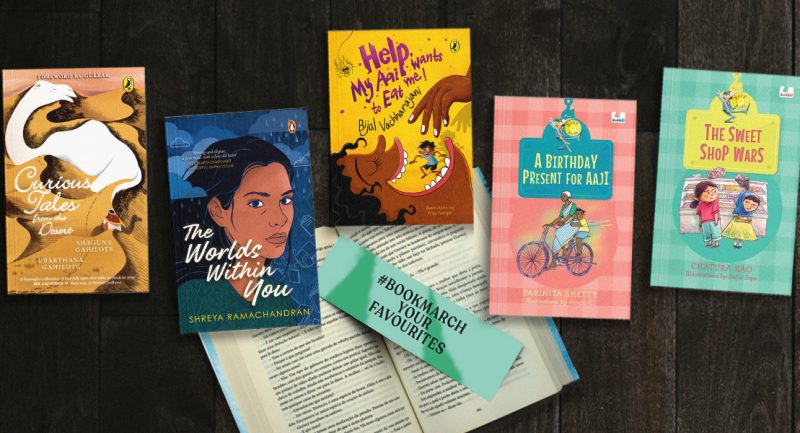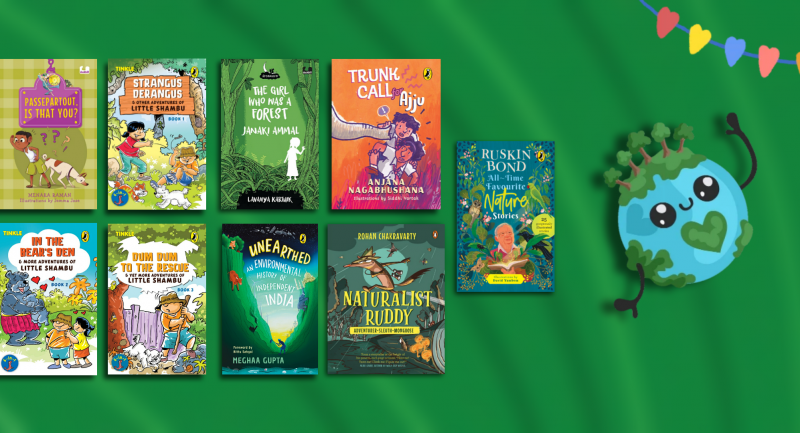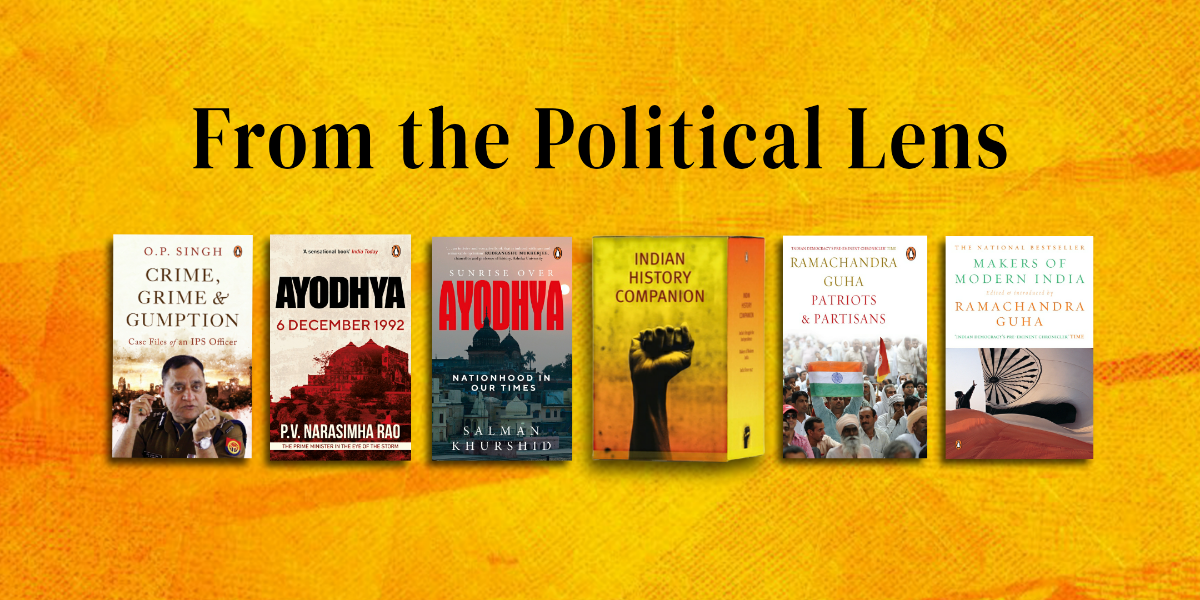
Take a trip into India’s political landscape with this curated selection of books offering unique perspectives on significant events and influential figures over the last few decades. From the aftermaths of the pivotal Ayodhya verdict to the forty-day hearing of the Ram Janmbhoomi-Babri Masjid dispute, these reads provide a compass to navigate the complexities of Indian politics.
Let’s prepare to be informed, challenged, and empowered by a richer understanding of our diverse nation.
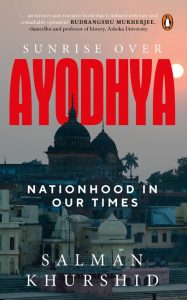
On 9 November 2019, the Supreme Court, in a unanimous verdict, cleared the way for the construction of a Ram temple at the disputed site in Ayodhya.
As we look back, we will be able to see how much we have lost over Ayodhya through the years of conflict. If the loss of a mosque is preservation of faith, if the establishment of a temple is emancipation of faith, we can all join together in celebrating faith in the Constitution. Sometimes, a step back to accommodate is several steps forward towards our common destiny.
Through this book, Salman Khurshid explores how the greatest opportunity that the judgment offers is a reaffirmation of India as a secular society.
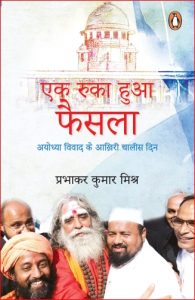
No any cases run so long and important in the history of modern India, which has a serious impact on the politics, society and its overall thinking of the country. The supreme court of India gave its verdict on the Ram Janmbhoomi-Babri Masjid dispute going on for centuries, on 9th November 2019, after a continuous hearing for forty days.
This book is an eye witness account of the same forty days of hearing in the Supreme Court. The book presents the background of the judges, the lawyers and the parties concerned, the ups and downs in the litigation and our secular justice system without any bias.
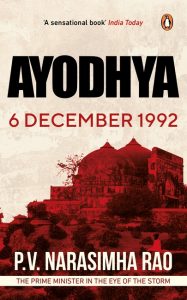
P.V. Narasimha Rao was the prime minister of India when, on 6 December 1992, thousands of kar sevaks stormed into the site of the Babri Masjid in Ayodhya. The nation watched in horror as the centuries-old mosque was razed to the ground, in the presence of paramilitary forces and senior political leaders, marking a turning point in post-Independence Indian history.
Many hold Rao responsible for not preventing the demolition, while others accuse him of being a co-conspirator. In this tell-all account, Rao reveals what really transpired in the run-up to that fateful day. Drawing on the Supreme Court order, parliamentary proceedings, eyewitness reports and his own insights, he presents a comprehensive view of the machinations that led to the demolition of the Babri Masjid.
Nearly three decades after the event, Ayodhya: 6 December 1992 remains a valuable resource to understanding the political manoeuvres behind the Ram Mandir issue and the dangers of exploiting religious sentiments for narrow electoral gains.
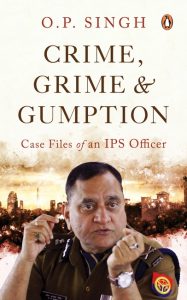
A 1983 batch Indian Police Service (IPS) officer, O.P. Singh donned various roles in the state and central services. Through his tenure, he witnessed several challenges, from the tackling of militancy in Kheri to managing disasters such as the April 2015 Nepal earthquake and the Srinagar and Chennai floods of 2014 and 2015, respectively. The Ayodhya verdict, Citizenship Amendment Act protests, the Kumbh Mela and Lok Sabha polls of 2019 all tested this officer’s mettle.
From the dusty plains of Gaya, Bihar, to the swampy and terror-infested wetlands of Lakhimpur Kheri, Uttar Pradesh, Crime, Grime and Gumption is an honest and hard-hitting account of law enforcement and governance in the Hindi belt of India. As the ‘policewallah’ gives you a peek into the world of the khaki in this memoir, you will be left thirsting for more.

How does a Parsi lawyer, deeply influenced by the principles of Roman Catholicism, fall in love with a Bahá’í and go on to become the Attorney General of India for a Hindu nationalist BJP government? How does a boy with a broken leg, who studied in a Gujarati-medium school, and lost his father at the age of nineteen, go on to mount a heroic defense of the Janata government’s decision to dissolve Congress state legislatures (in 1977) in the Supreme Court? How does a newspaper columnist who admires Nehru, who criticizes the BJP for being ‘obsessed’ with ‘demolishing mosques’ and advises them to replace ‘Hindutva’ with ‘Bharatva’ or ‘Indianness’, get chosen by Prime Minister Vajpayee to represent the government in the Supreme Court in many cases, including the Ayodhya case? How does a lawyer with a humdrum customs and excise law practice, whose grandfather sold horsedrawn carriages in Bombay, become a U.N. human rights rapporteur, and repeatedly defend the fundamental right to free speech and expression in the Supreme Court of India?
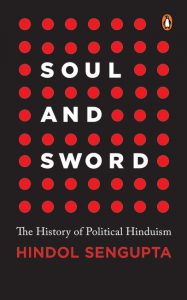
Soul and Sword traces the journey of political Hinduism from events that are critical to its self-narration, that is, early Indian resistance to invasions, to intellectual definitions by nineteenth-century littérateurs and more contemporary electoral politics. It tries to understand the context and historical sources used to construct and promote political Hinduism’s world view.
From award-winning writer Hindol Sengupta, Soul and Sword is absolutely critical reading to understand India’s present and future.
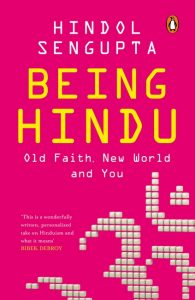
Being Hindu is an exploration of Hinduism in a way you have never seen before, almost through your own eyes. This is the first book on Hinduism to have won the Wilbur Award given by the Religion Communicators Council of America for excellence in writing about religion.

‘I am a person of moderate views,’ writes Ramachandra Guha, ‘these sometimes expressed in extreme fashion.’ In this wide-ranging and wonderfully readable collection of essays, Guha defends the liberal centre against the dogmas of left and right, and does so with style, depth, and polemical verve. The book begins with a brilliant overview of the major threats to the Indian Republic. Other essays turn a critical eye on Hindutva, the Communist left, and the dynasty-obsessed Congress party.
The essays in Part II of this book focus on writers and scholars, and include some sparkling portraits. Whether writing about politics or culture, whether profiling individuals or analysing social trends, Ramachandra Guha displays a masterly touch, confirming his standing as India’s most admired historian and public intellectual.
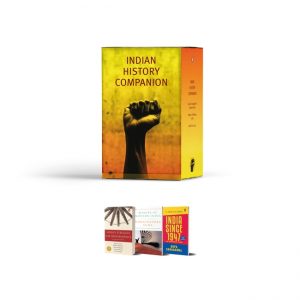
India’s Struggle for Independence-the first and most reliable study of the country’s epic fight for freedom by some of India’s most authoritative historians-is an established classic.
Makers of Modern India presents rare and compelling excerpts from the writings and speeches of nineteen Indians whose ideas had a defining impact on the formation and evolution of our republic.
India since 1947 is the definitive guide to post-Independence India, covering a wide range of topics, from agriculture, law, archaeology and the arts to science and technology, sports and wars.

The Makers of Modern India highlights little-known aspects of major figures in Indian history like Tagore and Nehru; it also rehabilitates thinkers who have been unjustly forgotten, such as Tarabai Shinde and Hamid Dalwai. These makers of modern India did not speak in one voice: their perspectives are sometimes complementary, at other times contradictory. The topics they explore and analyse include religion, caste, gender, language, nationalism, colonialism, democracy, secularism and the economy-that is to say, all that is significant in the human condition. These issues have a resonance in our own times, not just in India but everywhere in the world as well.







